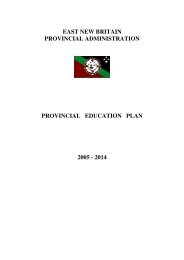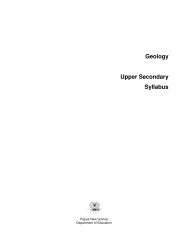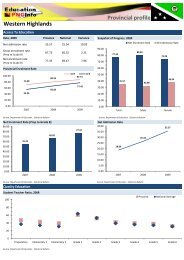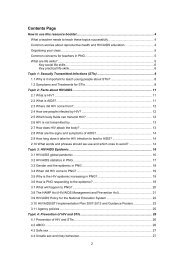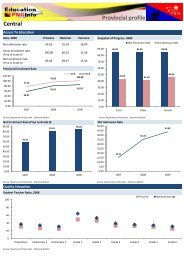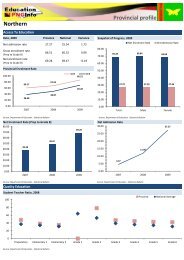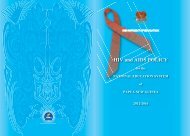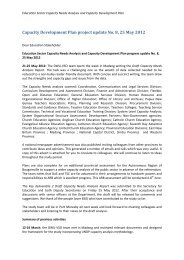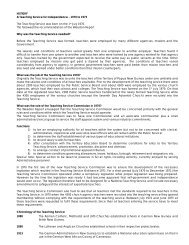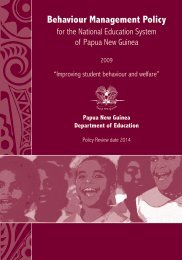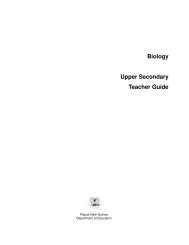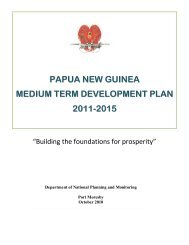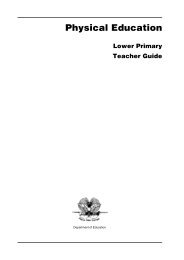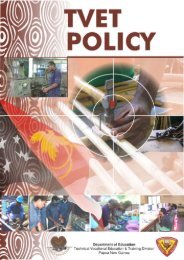English Lower Secondary Syllabus - Department of Education
English Lower Secondary Syllabus - Department of Education
English Lower Secondary Syllabus - Department of Education
You also want an ePaper? Increase the reach of your titles
YUMPU automatically turns print PDFs into web optimized ePapers that Google loves.
<strong>Lower</strong> <strong>Secondary</strong> <strong>Syllabus</strong>• explore and value the literacy diversity in stories across cultures• use personal experiences to develop insights into the actions <strong>of</strong>characters, plot development and other events in narrative texts• recognise and compare the depiction <strong>of</strong> reality in texts• analyse common themes in diverse Papua New Guinea texts• identify a variety <strong>of</strong> writing styles used by Papua New Guinea authorsand other world writers• identify different ideas, cultural purposes and values within narrativetexts from Papua New Guinea and beyond• identify how different narrative texts are used to represent people,places, events and things in ways that appeal to different cultural groups• identify stylistic features <strong>of</strong> visual texts which are used to controlmeaning, e.g. shapes <strong>of</strong> poem.Language• examine stylistic features <strong>of</strong> poetic, drama, and literary texts• discuss ways writers use language features to create meaning, e.g. use<strong>of</strong> vocabulary, tense, verbs, adjectives• examine the ways speech varies in narratives according to differentgroups <strong>of</strong> people• discuss figurative language in a variety <strong>of</strong> narrative texts, e.g. simile,metaphor, imagery.Skills and strategies• examine and discuss use <strong>of</strong> specific media techniques across a range <strong>of</strong>visual texts, e.g. sound, movement, framing• recognise and apply strategies to develop understanding, e.g. makinginferences about intercultural issues, creating questions about the texts,making notes• evaluate the usefulness <strong>of</strong> information in texts.Speaking and listeningListen to, speak about and present a range <strong>of</strong> oral stories about Papua NewGuinea and the world beyond and focus on contemporary cultural issues.Texts and contexts• respond thoughtfully and critically to narrative texts in a range <strong>of</strong> genrese.g. poems and films• select and summarise spoken ideas and information when listening to arange <strong>of</strong> spoken texts• explore links between language, culture and worldview in spoken texts• develop a main idea or point <strong>of</strong> view providing some supporting detailsand evidence to explore ideas and issues• discuss how character, plot and theme can be linked.Language• use appropriate vocabulary to express ideas and meanings in oralstories43



